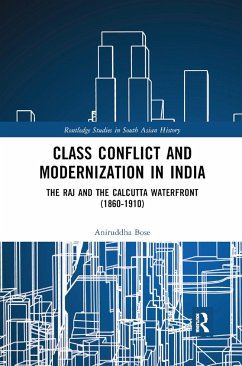In the days of the British Raj Calcutta was a great port city. Thousands of men, women, and children worked there, loading and unloading valuable cargoes that sustained the regional economy, and contributed significantly to world trade. In the second half of the nineteenth century, in response to a shift from sailing ships to steamers, port authorities in Calcutta began work on a massive modernization project. This book is the first study of port labor in colonial Calcutta and British India. Drawing on primary source material, including government documents and newspaper records, the author demonstrates how the modernization process worsened class conflict and highlights the important part played by labor in the shaping of the port's modernization. Class Conflict and Modernization in India places this history in a comparative context, highlighting the interconnected nature of port and port labor histories. It examines how the port's modernization affected the port workforce and the port's managers, as well as the impact on class formation that emerged as labourers resisted through acts of everyday resistance and organized strikes. A detailed study of state power, technological change, and class conflict, this book will be of interest to academics of modern Indian history, labour history and the history of science and technology.
Hinweis: Dieser Artikel kann nur an eine deutsche Lieferadresse ausgeliefert werden.
Hinweis: Dieser Artikel kann nur an eine deutsche Lieferadresse ausgeliefert werden.








